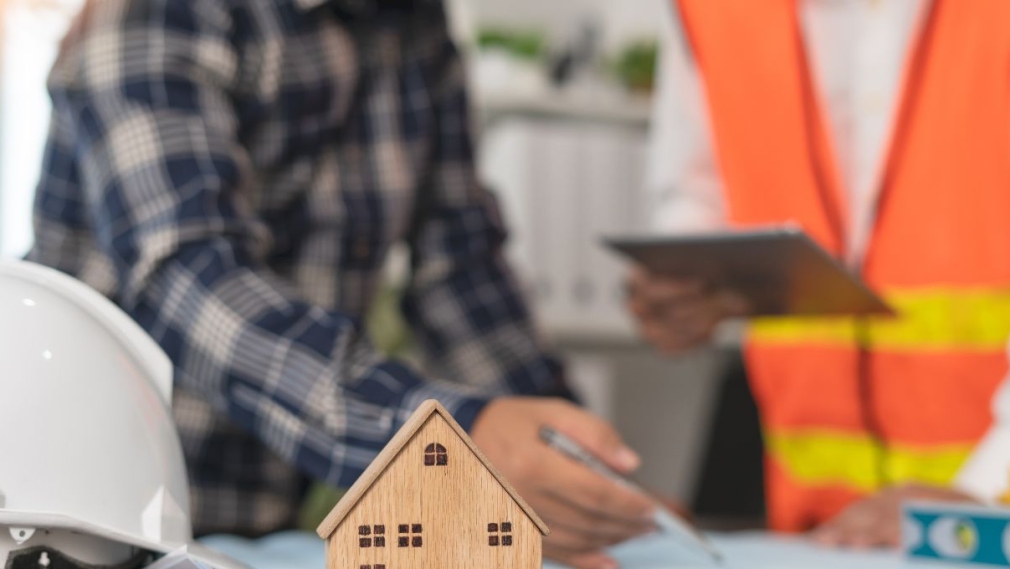Buying your first home in India is a major milestone. For many, stepping into the world of property can feel exciting yet daunting all at once. Amidst the thrill of choosing your dream space, you’ll likely encounter questions about timelines, legalities, builder credibility and how to make sure your investment remains secure. The good news: regulations like the Real Estate (Regulation and Development) Act, 2016 (RERA) exist to protect you. In this blog, we’ll explore how RERA safeguards you as a first buyer, and why opting for a trusted developer such as Omaxe Limited (with a strong residential and commercial portfolio across India) makes the journey smoother.
Why RERA Matters
Over the years, Indian real-estate had its share of challenges: delays, unclear project details, fund diversion, and unclear buyer rights. With the introduction of RERA, things changed. RERA mandates that builders register their projects, disclose key information, and follow strict timelines bringing much-needed transparency and accountability.
For you as a first-time home buyer, this means that the risk is considerably reduced: you can check the project’s status, access its details, and know you have legal recourse if things go sideways.
Key Protections Under RERA
Here are some of the core RERA provisions that matter most:
- Registration and disclosure: Developers must register each project with the state’s RERA authority. They must publish layout plans, land-title status, timelines, and approvals.
- Escrow/account-fund safeguarding: At least 70% of the money collected from buyers must be kept in a separate account (escrow) and used only for the project’s construction and land costs. This prevents fund diversion.
- Standardised definitions and transparency: For example, the “carpet area” must be clearly defined and used in pricing instead of ambiguous super-built-up area.
- Timely delivery & compensation: If the project is delayed or deviates materially from what was promised, you as a buyer can seek compensation.
- Grievance redressal: RERA provides a streamlined mechanism through state authorities and appellate tribunals for resolving disputes.
These protections turn a high-value investment into something with structured safeguards. For a first-time home buyer, that peace of mind is critical.
What First-Time Buyers Should Check
When you’re ready to book your first home, keep the following checklist handy:
- Verify RERA registration: On your state’s RERA portal, search for the project and confirm the registration number and status.
- Check project disclosures: Has the builder shared layout plans, approvals, timelines, carpet area details?
- Escrow fund usage: Ask or check if the collected money is being used properly for that project alone.
- Builder track record: Choose developers who have delivered on promise. For instance, Omaxe has delivered millions of square metres across 31 cities and specialises in both residential and commercial projects.
- Understand cancellation/refund terms: If the builder fails to deliver, what are your rights under RERA?
- Look beyond the brochure: Visit the site (if possible), check construction progress, talk to existing homes (if project is partly delivered).
- Read the agreement carefully: With RERA standardising agreements, you’ll benefit from clearer terms, but still ensure you’re comfortable with payment schedule and possession timelines.
Why Choose a Developer with Both Residential & Commercial Expertise
Choosing a developer who handles both residential and commercial projects (like Omaxe) can offer added advantages:
- Diverse experience: Commercial projects often have stricter compliance and timelines; residential benefit from that maturity.
- Better infrastructure & amenities: Developers experienced in mixed-use developments bring integrated living experiences.
- Delivery reputation: A developer who manages large scale commercial and residential builds across cities builds trust and brand credibility.
For the first-time home buyer, aligning with a developer who has demonstrated capability across segments diminishes risk.
What This Means for You as a First-Time Home Buyer
When you buy your first home, it’s not just about four walls and a roof. It’s about your future, your family’s safety, and your financial security. RERA’s existence means you’re no longer navigating this journey blindly. You have rights, information, and recourse. When such protections are paired with a developer of standing (with transparent portfolios and pan-India presence), you’re positioning yourself for a more confident investment.
Remember: you’ll use the home, live in it, build memories in it. So don’t skip the homework. Check the RERA registration, ensure disclosures, speak to the builder, and visit the project. Let your first home be a joy, not a worry.
In Summary
As a first-time home buyer, you’re entering the real-estate market at a time when safeguards like RERA are actively protecting your interests. Leverage these protections. Choose a developer who emphasises transparency, timely delivery and quality. With the right checks, and by selecting a credible player in the industry, you not only buy a home you buy peace of mind.
Now is the time to make your move. Do it smartly, confidently and safely.
FAQs
What is RERA and why should I care?
RERA stands for the Real Estate (Regulation and Development) Act, 2016. It ensures transparency and accountability in real estate transactions and protects buyers by mandating builder disclosures, fund safeguards, and legal recourse.
How can I check if a project is RERA-registered?
Visit your state’s RERA portal, search for the developer or project name, and verify the registration number, project status, registered carpet area, completion timeline and other details.
Does RERA guarantee on-time possession of my home?
While RERA doesn’t guarantee it 100 % on its own, it makes the developer legally liable for delays. If the builder misses deadlines, you may claim compensation or refund under RERA.
As a first-time home buyer, what special care should I take when buying?
In addition to verifying RERA registration, ensure you look at the builder’s track record, check payment schedules, understand cancellation & refund terms, and visit the site to check progress.
Is it safer to buy a project from a developer who also does commercial properties?
Yes, often. Developers with both residential and commercial expertise tend to have stronger delivery systems, infrastructure experience and compliance practices all of which benefit assurance for homebuyers.


